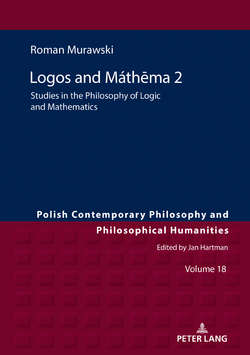Читать книгу Lógos and Máthma 2 - Roman Murawski - Страница 18
На сайте Литреса книга снята с продажи.
Some Historical, Philosophical and Methodological Remarks on Proof in Mathematics Introduction
ОглавлениеProofs play an important role in mathematics and its methodology (in the context of justification).They form the main method of justifying mathematical statements. Only statements that have been proved can be treated as belonging to the corpus of mathematical knowledge. Proofs are used to convince the readers of the truth of presented theorems. But what is in fact a proof? In mathematical research practice, proof is a sequence of arguments that should show the truth of the claim. Of course, the particular arguments used in a proof depend on the situation, on the audience, on the type of a claim, etc. Hence a concept of a proof has in fact a cultural, psychological and historical character. In practice, mathematicians generally agree whether a given argumentation is or is not a proof. More difficult is the task to define a proof as such. Beside proofs used in the research practice there is a concept of a formal proof developed by logic. What are the relations between them? What roles do they play in mathematics?
Problems of that type will be considered in the paper. We start by some historical remarks showing in what circumstance the idea of a proof (informal and formal) appeared. Next, the features and role played by informal proofs will be considered. The subject of the next section will be formal proofs and their relation to the concept of truth. In the closing section, some conclusions will be made and a thesis (similar to Church-Turing Thesis in the computation theory) formulated.
